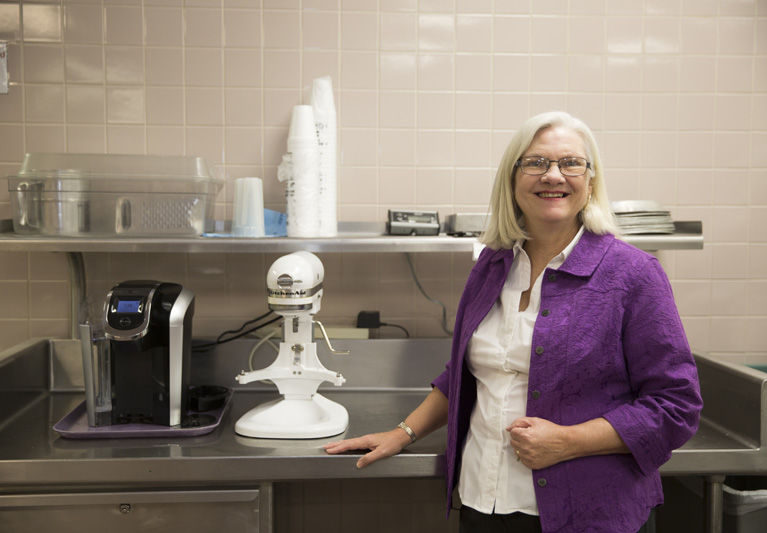
A recent study suggests women undergoing menopause may be protected against bone loss and osteoporosis by a diet that includes the types of protein and isoflavones found in soybeans.
Clinical dietitian Dianna DiCosimo, who works at Indian River Medical Center, says she strongly agrees that a diet rich in soy and isoflavones is helpful in the prevention of bone loss.
Literally meaning “porous bone,” osteoporosis reduces both the quality and density of bones, increasing the risk of fracture. Over the age of 50, osteoporosis affects 1 in 3 women and 1 in 5 men worldwide and is responsible for an estimated 9 million fractures each year.
After menopause, women produce less estrogen, a hormone that helps protect against bone loss. Isoflavones are compounds found only in plants; they have a chemical structure similar to estrogen. This similarity led the researchers to speculate that isoflavones might also have benefits for bone health. The richest sources of isoflavones are soybeans and soy products.
The study, conducted at the University of Hull in the United Kingdom, recruited 200 women in early menopause and split them randomly into two groups. One group of women took a daily supplement of 30 grams of soy protein and 66 milligrams of isoflavones. The other group took the same amount of soy protein but without the isoflavones.
The women took the supplements for 6 months; over that time they periodically gave blood samples, so researchers could look for markers of bone loss. One of these markers is a protein called βCTX; it signals “bone resorption,” the process that breaks down bone and releases its minerals into the bloodstream.
After 6 months, the women whose daily supplement contained both soy protein and isoflavones had significantly lower levels of βCTX than those whose daily supplement contained only soy protein. This suggested they had a lower rate of bone loss and consequently a lower risk of developing osteoporosis.
Lead author Dr. Thozhukat Sathyapalan, of Hull’s department of academic cardiology, says, “We found that soy protein and isoflavones are a safe and effective option for improving bone health in women during early menopause. The actions of soy appear to mimic that of conventional osteoporosis drugs.”
The average diet in Asia, where rates of osteoporosis and fracture are lower, includes about the same amount of isoflavones as the 66 milligrams taken by the study participants. In stark contrast, the average Western diet contains an estimated 2-16 daily milligrams of isoflavones.
Although the study participants took their soy isoflavones in the form of supplements, most experts say food is a better source.
Vero’s DiCosimo agrees. “There are intrinsic factors in food that allow the body to utilize these nutrients more effectively. These factors aren’t found in commercial supplements,” she says.
Another reason to ingest soy isoflavones through food rather than supplements is to avoid the possible side effects associated with too-high amounts. Although some of the studies are conflicting, non-dietary consumption of the compound has been associated with an increased risk of breast cancer, thyroid disorders, headaches and digestive problems
An often-heard recommendation is 50 milligrams a day; in addition to soybeans themselves, there are foods that stand out as good sources:
• Soy milk and soy yogurt
• Tofu (bean curd), a food made by coagulating soy milk and pressing the resulting curds into soft white blocks
• Miso, a thick paste-like substance made from fermented soy beans; most commonly served in miso soup
• Tempeh, made from cooked and slightly fermented soybeans; can be formed into a patty or used in soups, stews or casseroles
• Edamame (boiled green soybeans)
These foods may be somewhat strange to the Western palate, but it’s easy to reach 50 milligrams by small, supplemental changes in our diet. For instance, a cup of soy milk is 30 mg, 3 ounces of tofu is 20 mg, a half-cup of edamame is 12 mg, and half-cup of miso is a whopping 59 mg.
DiCosimo adds that a diet rich in calcium and Vitamin D is also helpful in the prevention of bone loss. Foods that are high in calcium include dairy products, spinach, kale, okra and certain fish (sardines, salmon, perch and rainbow trout). Foods that provide Vitamin D include fatty fish (tuna, mackerel and salmon), cheese, egg yolks and beef liver. Some other foods come in versions fortified with calcium and/or Vitamin D.
Indian River Medical Center is located at 1000 36th St in Vero Beach; the main phone number is 772-567-4311.



